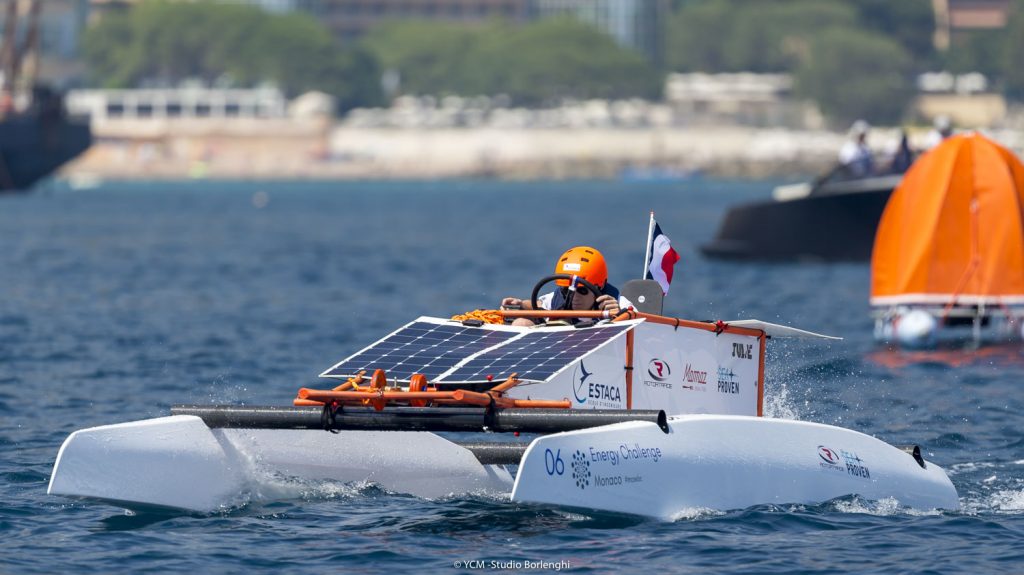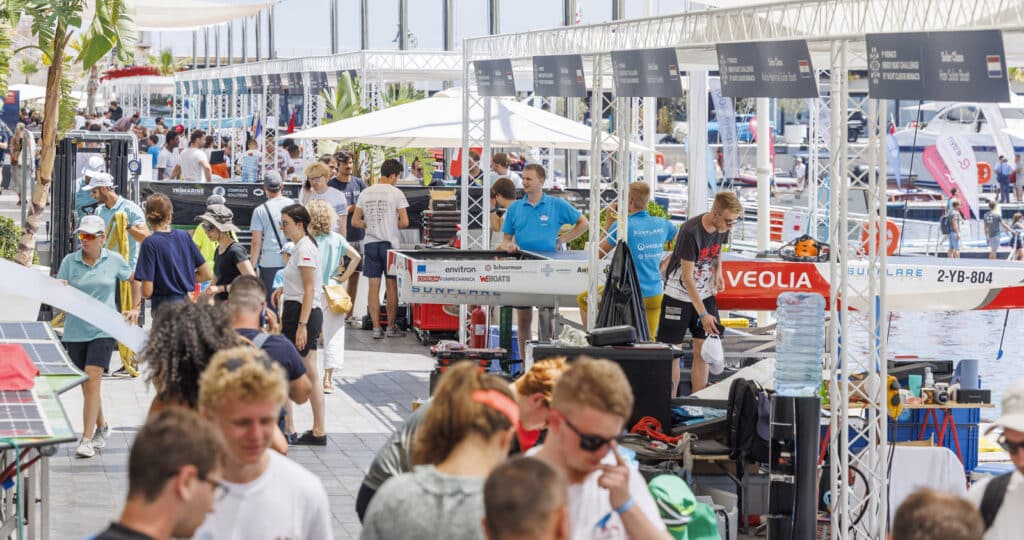For ten years now, the Monaco Energy Boat Challenge organised by Yacht Club de Monaco has been establishing itself as the big meeting for alternative energy sources honouring a long tradition. Supported by the Prince Albert II of Monaco Foundation, Credit Suisse, BMW and SBM Offshore, the event has attracted involvement by big name shipyards such as Oceanco, Ferretti, Sanlorenzo, Lürssen, Monaco Marine and Palumbo SY Refit.

The meeting lives and breathes sustainability and every initiative counts like that of German team WannSea Tu Berlin from Technische Universität. “We chose a logistics partner who could transport our boat in a more eco-friendly way. It seemed a contradiction to drive a diesel truck to take a CO2-neutral electric boat 1,500km from Berlin to Monaco – and back another 1,500km!”, explains Riccardo Petschke. “Our solution was to use a sponsor, H2 Green Power Logistics. Our boat was partly transported by a Hyundai H2 truck, but this was only possible as far as Switzerland as there are no H2 gas stations from there to Monaco. The last kilometres were covered by a Bio CNG [compressed natural gas] truck, it’s a liquid gas, similar to LNG [liquefied natural gas]. The second stage did generate some emissions but significantly lower than a conventional truck”.
The second conclusion is that efficiency is key and that the angle taken must be partially reversed to ensure the approach and engineering are holistic. As Rodi Basso, CEO of the E1 Electric Powerboat Championship, also involved in Formula E, pointed out: “Monaco Energy Boat Challenge engineers have a bright future ahead of them”, while Luca Santella, Head of Product Strategy at Blue Game believes they are the ones who “with their passion, energy and concern about the environment” will accelerate the pace of change.
The Berlin team has built an eco-friendly boat using lots of wood and sustainable materials. “We also plan to reintroduce many of our components back into a life cycle after the Monaco Energy Boat Challenge. The transport had to be as sustainable as possible,” added Riccardo. Thirteen people are behind this project who arrived in Monaco by train to minimise the environmental impact of their journey. The students also had a surprise visit from Boris Herrmann, skipper on Yacht Club de Monaco’s Malizia-Seaexplorer, here for the first time in the Principality having finished 3rd in the crewed round the world in stages, The Ocean Race.
